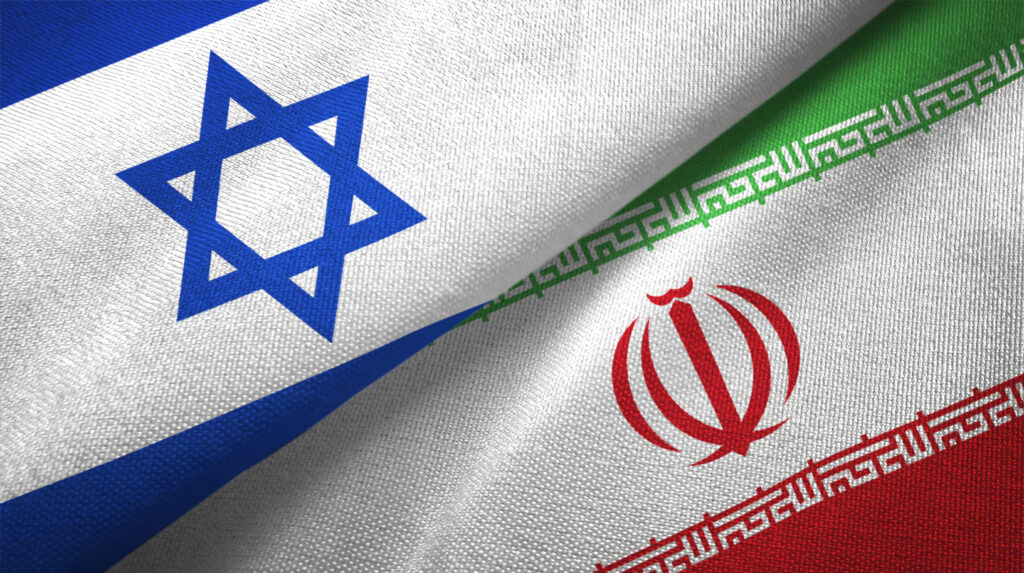Introduction
The Iran Israel Conflict is one of the most complex and enduring geopolitical issues in the Middle East. With deep-rooted historical, ideological, and religious differences, the tensions between these two nations have far-reaching implications, not only for regional stability but also for the global economy. This blog explores the key aspects of the Iran vs. Israel conflict, recent developments, and its potential impact on global markets.

Historical Context
Origins of the Iran Israel Conflict
The origins of the Iran vs. Israel conflict can be traced back to the Iranian Revolution in 1979, which resulted in the severing of diplomatic ties between the two countries. The conflict is primarily driven by:
- Political and Ideological Differences: Iran’s Islamic Republic is opposed to Israel’s existence, while Israel perceives Iran’s nuclear ambitions as a significant threat.
- Regional Influence: Both nations vie for regional dominance, often engaging in proxy wars through allied groups and militias.
Recent Escalations
The past few years have witnessed a series of escalations, characterized by:
- Military Clashes: Frequent military confrontations, including drone attacks, missile strikes, and airstrikes targeting each other’s assets.
- Cyber Warfare: Both nations have reportedly engaged in cyberattacks, targeting critical infrastructure and causing disruptions.
Key Statistics and Facts
Military Capabilities
Iran:
- Active Personnel: Approximately 525,000 active military personnel.
- Defense Budget: Estimated at $25 billion in 2023.
- Missile Arsenal: Includes ballistic missiles like the Shahab-3, capable of reaching Israel with a range of 1,000-2,000 km.
Israel:
- Active Personnel: Around 170,000 active personnel.
- Defense Budget: Estimated at $24.5 billion in 2023.
- Missile Defense Systems: Advanced systems like Iron Dome, David’s Sling, and Arrow to intercept and neutralize incoming threats.
Recent Incidents
- Military Strikes: In 2023, there were multiple instances of airstrikes and missile attacks, with Israel targeting Iranian positions in Syria.
- Cyber Attacks: Israel accused Iran of attempting to hack its water systems in 2020, highlighting the cyber dimension of the conflict.
Impact on the Global Economy
Oil Prices and Energy Markets
The Middle East, particularly the region around the Strait of Hormuz, plays a critical role in global energy supply:
- Strait of Hormuz: Approximately 20% of the world’s petroleum passes through this strategic chokepoint. Any conflict here can disrupt oil shipments, leading to price spikes.
- Oil Price Volatility: Iran Israel Conflict often lead to increased oil prices. For instance, during heightened tensions in 2020, oil prices surged by over 4%.
Global Trade and Supply Chains
The Iran Israel Conflict can have profound effects on global trade:
- Supply Chain Disruptions: The Middle East is crucial for global supply chains. Escalations can lead to disruptions, affecting trade and logistics worldwide.
- Impact on Shipping Routes: Conflicts might lead to blockades or increased security risks in vital shipping lanes, affecting the movement of goods.
Financial Markets
Geopolitical tensions have a direct impact on financial markets:
- Market Volatility: Such tensions lead to volatility, with investors often turning to safer assets like gold and government bonds.
- Risk Premium: Increased geopolitical risk can lead to higher borrowing costs for affected regions, impacting investments and economic growth.
Regional Economies
The conflict significantly impacts Middle Eastern economies:
- Economic Instability: Direct military conflicts can result in economic instability, reduced investment, and increased fiscal pressures on regional economies.
- Economic Sanctions: Sanctions, particularly against Iran, have severely impacted its economy. For example, Iran’s GDP contracted by 6.8% in 2019 due to sanctions.
Defense Spending and Regional Security
- Increased Military Expenditure: Nations in the region, including Israel and Iran, may increase defense spending, diverting resources from other economic activities.
- Arms Race: The conflict may spur an arms race, leading to increased military purchases and regional instability.
Recent Developments and Diplomatic Efforts
Recent developments in the Iran Israel Conflict have seen a mix of escalation and diplomatic efforts:
- Diplomatic Efforts: Ongoing international efforts to mediate the conflict involve key players like the U.S., Russia, and European nations, seeking peaceful resolutions
- Regional Alliances: The Abraham Accords, normalizing relations between Israel and several Arab states, have shifted regional dynamics and increased diplomatic isolation for Iran.
- Nuclear Deal Negotiations: The Joint Comprehensive Plan of Action (JCPOA), or Iran nuclear deal, remains a focal point, with negotiations impacting diplomatic and economic relations.
Conclusion
The Iran Israel Conflict is a critical geopolitical issue with significant implications for the global economy. The potential for disruption in energy markets, global trade, and financial stability makes it a concern for investors and policymakers worldwide. As tensions persist, the need for diplomatic resolutions and strategic economic planning becomes ever more crucial.
Investors and businesses should remain vigilant, monitor developments, and consider potential economic impacts when making strategic decisions.
Checkout Other Innovative startup Called FastBeetle.
Follow us on Linklden: https://www.linkedin.com/company/founderhubin/

